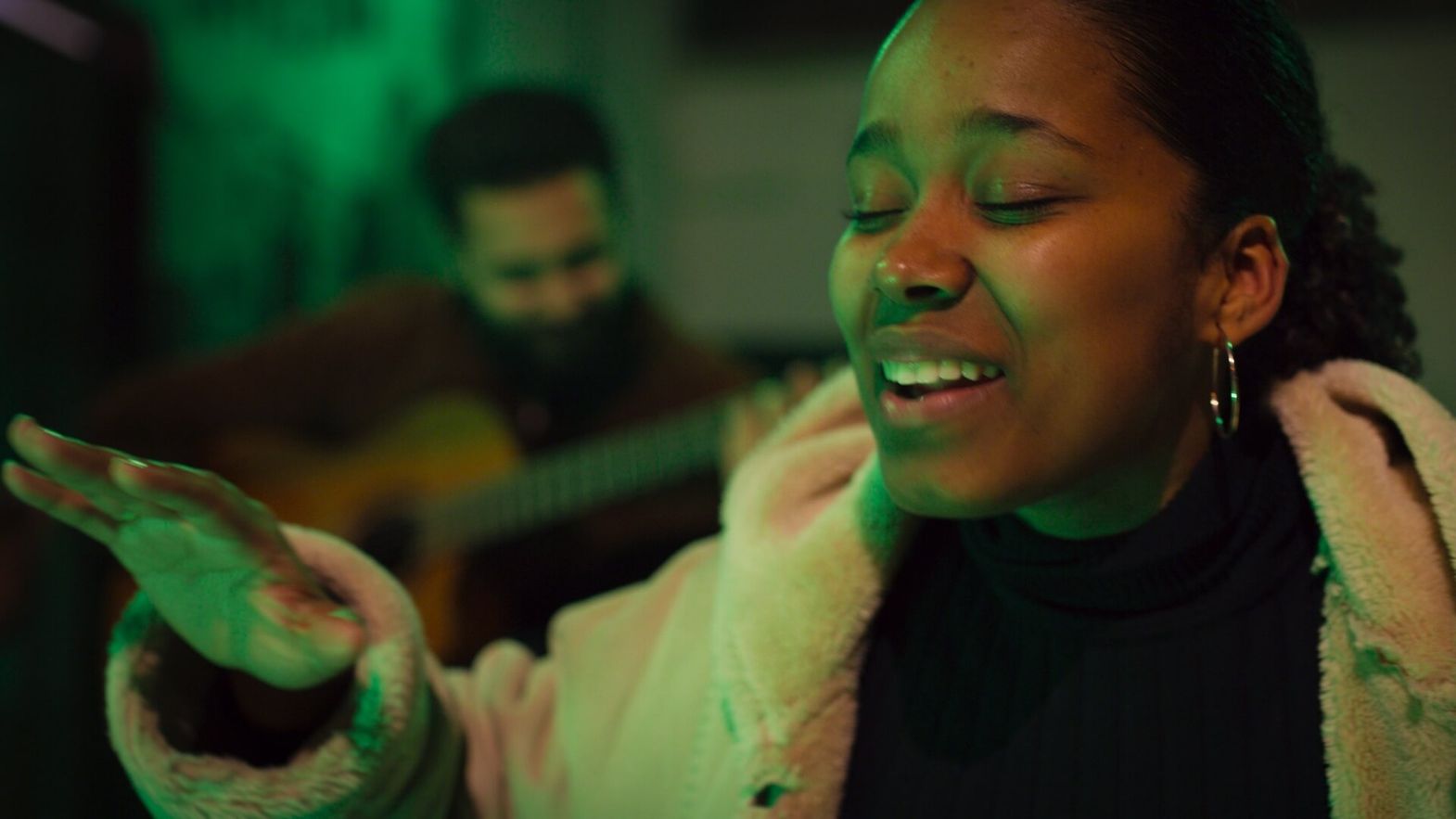 © AKKA Films Basil Da Cunha, 2023
© AKKA Films Basil Da Cunha, 2023
Basil Da Cunha is the director on the fringes, of what is relegated to the physical and symbolic peripheries of the West, and of the excluded. The Swiss-Portuguese filmmaker sets all his stories in the slums of Lisbon, where mainly Afro-descendants live. Rarely is such thematic coherence observed in the filmographies of contemporary filmmakers. One suspects that behind the choice of always returning to the same places is the desire to immerse oneself in the social milieus from which the stories told arise, and not to simply walk through them like a film tourist. In Da Cunha's cinema, there is no room for the misery porn that characterizes part of western cinema. His films are not made for the use of the spectator in search of posturing indignation and self-absolution. His gaze is respectful and aware of walking through existences marked by history and abuse. His camera is close to the characters portrayed, humbly accompanying actors and actresses, often non-professionals, not overpowering them and forcing us, as the audience, to feel the stories told up close and not simply watching them with pity. The reality he portrays is often stark, but always leaves glimmers of hope. Its protagonists are dreamers, not quitters. In the 2019 edition of the Locarno Film Festival, with O Fim do Mundo, presented in the Concorso internazionale, Da Cunha took us for the second time to the Reboleira neighbourhood, in the extreme suburbs of Lisbon, to give us back the vitality of a slum where people of Cape Verdean origin mainly live, and tell us about the unstoppable process of gentrification that excludes the most fragile from the urban fabric of the Portuguese capital. With Manga D'Terra, which again this year competes for the main prize at the Locarno Film Festival, Da Cunha does not fail in his consistency and takes us once again to the Reboleira neighbourhood, where white men only enter in uniform and riot gear to arrest young people who have been guilty of some minor crime. In this context lives Rosinha, a 20-year-old woman who left Cape Verde to offer her children a better future. Widowed, she does not lead an easy life and struggles to stay away from her children and her homeland. Caught between the bullying of the small neighborhood bosses and the daily violence of the institutions, Rosinha tries to find comfort among the women of the community. Female solidarity is not lacking, but the real escape route for the protagonist is music. Rosinha is talented and dreams of becoming a successful singer. The ambition of the young woman, played by Eliana Rosa, allows Da Cunha to stage and pay homage to the musical tradition of Cape Verde, little known in comparison to other Lusophone contexts, and to create lyrical pauses in a realist narrative. Da Cunha, also in this film, confirms himself as a director capable of bringing out the best in actors and actresses taken from the street. Protagonist and co-protagonists give us cinematic performances that, we are sure, will not leave the critics and the public present at the Festival indifferent.
Mattia Lento
Manga D'Terra CURIOSITIES
Basil Da Cunha has Swiss and Portuguese nationality. He studied at HEAD - Haute école d'art et de design in Geneva. His second film, O Fim do Mundo, was in competition at Locarno72.